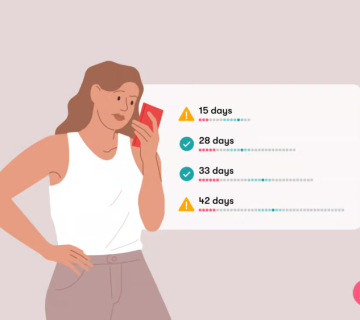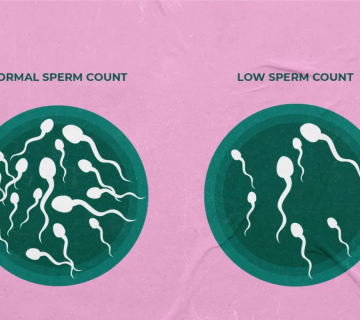
Debunking Myths About Progesterone Shots in IVF
When it comes to IVF (in vitro fertilization), there’s a lot of information floating around—much of it misleading. One of the most common topics that causes confusion and worry is the use of progesterone shots. These injections are a critical part of many IVF protocols, but they often come with a lot of myths and misconceptions. Let’s break down some of the most common myths surrounding progesterone shots in IVF and set the record straight.
Myth 1: “Progesterone Shots Are Painful and Only Used in IVF for Women Who Are Older or Have Failed IVF Cycles.”
One of the most common misconceptions about progesterone shots is that they are only given to women who are older or those who have had previous failed IVF cycles. This simply isn’t true.
Progesterone shots are used as part of the standard IVF protocol for most women, regardless of their age or previous IVF history. The role of progesterone is to prepare the uterine lining to receive the embryo and maintain a supportive environment for early pregnancy. It is vital for implantation to occur, and without it, the chances of a successful pregnancy can be greatly reduced.
Dr. Linda Matthews, a fertility specialist, explains:
“Progesterone is a hormone that’s necessary for all IVF patients, whether it’s their first cycle or their fifth. It’s not about age or past IVF failures; it’s about ensuring the best environment for embryo implantation.”
While it’s true that progesterone shots are more commonly used when the body isn’t producing enough of the hormone on its own, many women, even in their 20s or 30s, still need progesterone supplementation during IVF to ensure the best chances of success.
Myth 2: “Progesterone Shots Are the Only Option for Supplementing Progesterone During IVF.”
Another widespread myth is that progesterone shots are the only option for IVF patients who need progesterone supplementation. This is simply false.
While progesterone shots (typically given in the muscle) are one method of supplementation, they are not the only way. Some patients may be given progesterone in other forms, such as vaginal suppositories, oral pills, or even an intramuscular oil-based solution. The decision on which form to use depends on your fertility doctor’s protocol and your body’s response to each type.
Dr. Sarah Green, an IVF expert, clarifies:
“There are different ways to deliver progesterone, and the decision often comes down to patient preference and how well the body tolerates each option. For some, vaginal suppositories may be a better fit than shots, but the goal is always the same: to maintain a healthy uterine environment for embryo implantation.”
Each method has its advantages and disadvantages, but the key point is that progesterone supplementation is customizable. Some women may prefer the convenience of daily injections, while others may opt for vaginal suppositories to avoid the discomfort of shots. It’s essential to discuss these options with your doctor to find what works best for you.
Myth 3: “Progesterone Shots Are Only for Women Who Get Pregnant with IVF.”
Here’s another common myth that needs debunking: progesterone shots are only necessary for women who successfully get pregnant through IVF. This is completely inaccurate.
Progesterone shots are given to prepare the uterus for implantation before the embryo is even transferred. If implantation does not occur, the progesterone will stop, and the period will start. But, if implantation is successful, the progesterone continues to support the pregnancy during its early stages, which is crucial for preventing a miscarriage. The timing of the shots is just as important as the hormone itself.
Dr. Emily Tan, a fertility expert, says:
“Progesterone plays an essential role not just in IVF, but in maintaining any early pregnancy. Without adequate progesterone, the uterine lining may not be receptive enough to support the embryo. This is why progesterone shots are used even before pregnancy is confirmed.”
In fact, progesterone is used in almost all types of assisted reproductive technologies, not just IVF, because of its role in ensuring the uterus is ready to sustain a pregnancy. The progesterone shots are part of a standard protocol for the first several weeks, regardless of whether pregnancy happens or not.
Myth 4: “Progesterone Shots Can Cause Miscarriage or Harm the Pregnancy.”
Some people worry that progesterone shots could somehow harm the pregnancy or lead to a miscarriage. This myth has no basis in scientific evidence. In fact, progesterone is essential for pregnancy maintenance.
Progesterone is naturally produced by the body after ovulation to prepare the uterine lining for a fertilized egg. In IVF, the injections help mimic and supplement this process. Without progesterone, the uterine lining cannot support a pregnancy, and a miscarriage is more likely.
Dr. Heather Phillips, a leading fertility researcher, states:
“Progesterone is not only safe during early pregnancy, but it’s critical. There’s no evidence to suggest that progesterone shots would cause harm to the pregnancy. On the contrary, they are used to prevent miscarriage.”
The use of progesterone shots is, in fact, a measure to increase the chances of a successful pregnancy. They help stabilize the early stages of pregnancy, especially when the body might not produce enough progesterone naturally.
Myth 5: “Progesterone Shots Are Always Given for the Full Length of Pregnancy.”
Some women worry that they will need progesterone shots throughout the entire pregnancy. While it is true that progesterone plays an essential role in pregnancy maintenance, the shots typically only last for a few weeks following embryo transfer.
Most IVF protocols will have you continue progesterone supplementation for about 10-12 weeks after the embryo transfer. By that time, the placenta usually takes over the production of progesterone, making the shots unnecessary.
Dr. Linda Matthews clarifies:
“The goal is to ensure a healthy pregnancy until the placenta is able to support it on its own. Progesterone supplementation is typically phased out after 10 to 12 weeks, depending on the patient’s response.”
Once your pregnancy reaches this stage, your doctor will evaluate whether to stop the progesterone shots, though some women may still need to continue oral progesterone or vaginal forms for a bit longer.
Final Thoughts: Don’t Believe Everything You Hear
Progesterone shots are an essential part of many IVF protocols, and understanding their role can help you feel more comfortable and prepared. The myths surrounding progesterone injections often cause unnecessary fear and confusion, but by debunking these misconceptions, we can ensure that patients are better informed and ready to take the next steps in their IVF journey.
If you’re considering or currently undergoing IVF, always discuss your concerns with your fertility doctor. They can help guide you through the process, answer questions, and explain how progesterone shots fit into your personalized treatment plan. And remember, just because you hear something on the internet or from others doesn’t mean it’s true—always go to trusted, qualified professionals for your information.



